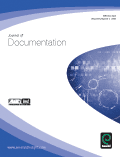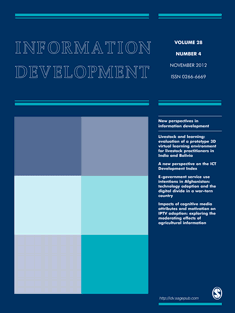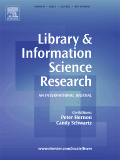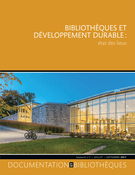
JOURNAL OF DOCUMENTATION
Scope & Guideline
Unveiling Cutting-edge Research for Tomorrow's Information Systems.
Introduction
Aims and Scopes
- Knowledge Organization Systems and Methodologies:
The journal focuses on the development and evaluation of knowledge organization systems, including classification, metadata, and digital repositories, emphasizing their role in facilitating access to information. - Information Behavior and User Experience:
Research on how individuals seek, use, and interact with information is central to the journal's scope, exploring the cognitive and emotional dimensions of information experiences across various contexts. - Cultural and Social Implications of Documentation:
The journal addresses the socio-cultural challenges surrounding documentation practices, including the impact of libraries, archives, and digital heritage on community engagement and identity. - Interdisciplinary Approaches to Information Science:
A significant aim is to foster interdisciplinary research that connects information science with fields such as digital humanities, sociology, and cultural studies, promoting a holistic understanding of information practices. - Ethics and Policy in Information Practices:
Exploring the ethical considerations and policy implications of information access, privacy, and digital rights is a recurring theme, particularly in the context of marginalized communities.
Trending and Emerging
- Artificial Intelligence and Automation in Documentation:
There is a growing interest in the application of artificial intelligence and machine learning within documentation practices, particularly concerning metadata enrichment and automated classification. - Community Engagement and Participatory Research:
Research emphasizing community involvement in documentation and library practices is on the rise, highlighting the importance of co-creating knowledge and fostering inclusive environments. - Digital Humanities and Interdisciplinary Collaboration:
The intersection of digital humanities and information science is increasingly prominent, with studies focusing on collaborative projects that enhance cultural heritage and scholarly communication. - Health Information Behavior and Digital Health Literacy:
Emerging themes around health information behavior, particularly in the context of the COVID-19 pandemic, reflect a trend towards understanding how individuals seek and use health-related information. - Ethics, Privacy, and Data Governance:
As digital information sharing grows, there is heightened attention on ethical considerations, privacy issues, and the governance of data, particularly concerning marginalized communities and digital rights.
Declining or Waning
- Traditional Library Science Practices:
There is a noticeable decline in papers focusing solely on traditional library science practices, as the field increasingly embraces broader interdisciplinary perspectives and innovative technologies. - Print vs. Digital Documentation:
The discussion around the dichotomy of print versus digital documentation has diminished, with fewer studies addressing this issue directly as the focus shifts towards integrated digital solutions. - Historical Documentation Techniques:
Research specifically centered on historical documentation methods has waned, as contemporary studies tend to emphasize current practices and technologies rather than historical context. - Static Information Retrieval Models:
Static models of information retrieval are receiving less attention, as the field moves towards dynamic and user-centered approaches that account for user behavior and context. - Narrow Definitions of Information Literacy:
The scope of information literacy has expanded beyond narrow definitions, leading to a decline in studies that focus solely on basic literacy skills without considering broader socio-cultural factors.
Similar Journals

Malaysian Journal of Library & Information Science
Pioneering Research in Library & Information TrendsMalaysian Journal of Library & Information Science, published by the University of Malaya, Faculty of Computer Science & Information Technology, serves as a crucial platform for researchers, professionals, and students in the field of Library and Information Sciences. With a commitment to advancing scholarly knowledge, this journal has consistently showcased significant research contributions since its inception in 1996, and is currently indexed in Scopus, ranking in the 62nd percentile among its peers. The journal's Q2 categorization reflects its growing impact and relevance in the scholarly community. Although it operates as a traditional subscription-based journal, the publication holds great importance for those looking to delve into innovative practices and emerging trends within library and information sciences. Researchers and practitioners can access valuable insights that contribute to a deeper understanding of the evolving landscape in Malaysia and beyond. Addressed from Kuala Lumpur, Malaysia, the journal welcomes contributions that further exploration and scholarship in the vital field of information dissemination and management.

Information Development
Empowering Scholars in the Dynamic World of InformationInformation Development, published by SAGE Publications Ltd, is a prestigious journal focusing on the dynamic intersection of library science and information development. With an ISSN of 0266-6669 and an E-ISSN of 1741-6469, this journal has established itself as a critical resource for researchers, professionals, and scholars in the field since its inception in 1985. With a 2023 Q2 ranking in Library and Information Sciences and a commendable Scopus rank, falling within the 82nd percentile among its peers, the journal provides an invaluable platform for the dissemination of cutting-edge research and innovative practices. Notably positioned in the United Kingdom, the journal offers insightful explorations of contemporary challenges and advancements in information access, management, and policy. Although currently not an Open Access journal, it continues to contribute significantly to its field by fostering a robust academic dialogue and sharing knowledge essential for the evolution of library and information sciences. Scholars and practitioners alike are encouraged to engage with Information Development as it remains instrumental in navigating the complexities of today's information landscape.

LIBRARY & INFORMATION SCIENCE RESEARCH
Pioneering research for a transformative library experience.LIBRARY & INFORMATION SCIENCE RESEARCH is a premier academic journal dedicated to advancing the field of library and information sciences. Published by Elsevier Science Inc, this journal has established its reputation for rigorous research and impactful scholarship since its inception in 1987. With an impressive Q1 ranking in Library and Information Sciences and a Q2 ranking in Information Systems for 2023, it reflects the growing importance of library sciences in an increasingly digital world. The journal serves as an essential platform for researchers, professionals, and students, offering insightful articles that address emerging trends and challenges in the realm of information dissemination and management. Although not an open-access journal, its contributions are widely recognized, as evidenced by its strong Scopus rankings, with a position of #53 out of 280 in Library and Information Sciences. If you are looking to deepen your understanding of the dynamic interplay between libraries, technology, and information systems, LIBRARY & INFORMATION SCIENCE RESEARCH is an indispensable resource in your academic journey.

Documentation et Bibliotheques
Advancing knowledge in library science and documentation.Documentation et Bibliothèques is a pivotal academic journal published by the Association pour l'Avancement des Sciences et Techniques de la Documentation, based in Montreal, Canada. Focusing on the fields of library science and documentation, this journal serves as a crucial platform for disseminating research and practical insights that drive innovation in information management and library services. Although it does not follow an open access model, it boasts a dedicated readership among researchers, professionals, and students who seek high-quality content in the realm of information science. With its commitment to advancing theoretical and empirical studies, Documentation et Bibliothèques remains an essential resource for navigating the evolving landscape of documentation and library services. For those interested in exploring how strategic documentation practices can enhance knowledge dissemination, this journal provides a wealth of valuable resources and scholarly articles.

Annals of Library and Information Studies
Fostering Dialogue in Library ScienceAnnals of Library and Information Studies is a prominent open-access journal, published by NATL INST SCIENCE COMMUNICATION-NISCAIR in India, dedicated to advancing research in the fields of library science and information studies. With an ISSN of 0972-5423 and an E-ISSN of 0975-2404, this journal ensures broad accessibility, having embraced open access since 2009, facilitating the dissemination of knowledge to a diverse global audience. The journal features a comprehensive range of scholarly articles that explore innovative practices, emerging technologies, and significant trends influencing library and information science, which are crucial for professionals, researchers, and students alike. Additionally, it holds a respectable ranking in Scopus, positioned at the 54th percentile in Library and Information Sciences and 22nd percentile in Computer Science Applications, underscoring its relevance and impact within these disciplines. The Converged Years of 2011 to 2024 illustrate a commitment to publishing contemporary research. As the realm of information continues to evolve rapidly, the Annals of Library and Information Studies serves as an essential platform for fostering dialogue and knowledge exchange, solidifying its role as a vital resource for the academic community.

Biblios-Revista de Bibliotecologia y Ciencias de la Informacion
Advancing Insights in Library and Information SciencesBiblios-Revista de Bibliotecologia y Ciencias de la Informacion, published by the University of Pittsburgh's Library System, stands as a pivotal contributor to the field of Library and Information Sciences. Holding an ISSN of 1562-4730, this peer-reviewed journal has been offering Open Access content since 2011, reinforcing its commitment to the democratization of knowledge. Despite its current classification in the Q4 quartile with a Scopus rank of 257 out of 280 in its category, the journal plays a crucial role in disseminating research that explores contemporary challenges and innovations within the library science landscape. It is particularly relevant for researchers, practitioners, and students invested in the future of information management and bibliographic studies. With coverage from 2014 to 2024, Biblios provides a platform for scholars to engage with critical discourse, share findings, and enhance the global library and information community.

Em Questao
Exploring Innovative Trends in Library and Communication StudiesEm Questao is an esteemed open-access journal dedicated to the fields of library science and communication studies, published by the Universidade Federal do Rio Grande do Sul, specifically through its esteemed Faculdade de Biblioteconomia e Comunicação. Since its inception in 2003, this journal has provided a platform for researchers, professionals, and students to disseminate influential scholarly work that fosters dialogue and innovation within these critical academic domains. Em Questao strives to enhance the visibility of emerging trends and methodologies in library science and communication, making it an indispensable resource for those looking to navigate the complexities of information dissemination in today's digital landscape. With a commitment to open access, it ensures that knowledge is readily available to a global audience, contributing to the advancement of these vital fields. Researchers interested in exploring insightful analyses and fostering collaborative research will find Em Questao a valuable addition to their academic resources.

Perspectivas em Ciencia da Informacao
Innovating insights for the future of information science.Perspectivas em Ciencia da Informacao is a premier academic journal published by Universidade Federal de Minas Gerais, specifically from the Escola de Biblioteconomia. Since its inception in 2006, this Open Access journal has become a vibrant platform for disseminating research in the fields of Library and Information Sciences, Information Systems, Communication, and Museology. With a reputation bolstered by its classification in multiple quartiles—ranging from Q2 to Q4 in 2023—this journal stands out in the Brazilian academic landscape, providing valuable insights and supporting knowledge development for researchers, professionals, and students alike. Its impact is further underscored by its inclusion in Scopus, where it ranks within the lower percentiles of its categories, highlighting its potential for growth and increasing relevance in the scholarly community. The journal aims to explore emerging trends and significant issues in information science, facilitating an essential dialogue among scholars and practitioners to propel the field forward.

Transinformacao
Elevating academic discourse through rigorous interdisciplinary scholarship.Transinformacao is a distinguished academic journal published by Pontificia Universidade Catolica Campinas in Brazil, focusing on the interdisciplinary fields of Communication, Information Systems, Library and Information Sciences, and Museology. With a commitment to advancing knowledge and fostering scholarly dialogue, the journal spans coverage from 2010 to 2023 and has been categorized in various quartiles, reflecting its growing influence; it holds a Q3 ranking in Communication and Library and Information Sciences, and a Q4 ranking in Information Systems. This positioning demonstrates the journal's relevance within the academic community, appealing to researchers, professionals, and students invested in these dynamic fields. Although it does not currently offer open access publishing, Transinformacao provides critical insights and findings valuable for those pursuing innovative research, striving to enhance practices and understanding within their disciplines. Located in Campinas, SP, the journal continually seeks to engage with emerging trends and robust methodologies, contributing meaningfully to academic discourse.

KNOWLEDGE ORGANIZATION
Navigating the Complexities of Information OrganizationKNOWLEDGE ORGANIZATION is a prominent journal in the field of Library and Information Sciences, published by NOMOS Verlagsgesellschaft mbH & Co KG. With an impressive impact reflected by its 2023 Q2 category ranking and a Scopus rank of #135 out of 280 in its discipline, this journal serves as a vital platform for disseminating research that advances our understanding of knowledge organization systems and practices. Since its inception in 1993, the journal has provided a convergence of innovative theoretical frameworks and practical applications that address the complexities of organizing knowledge in an ever-evolving information landscape. Although it currently does not offer open access options, KNOWLEDGE ORGANIZATION continues to be essential for researchers, practitioners, and students eager to explore critical methodologies and emerging trends within the field. For those interested in contributing to or gaining insight from high-quality research relevant to library and information sciences, this journal remains an invaluable resource.